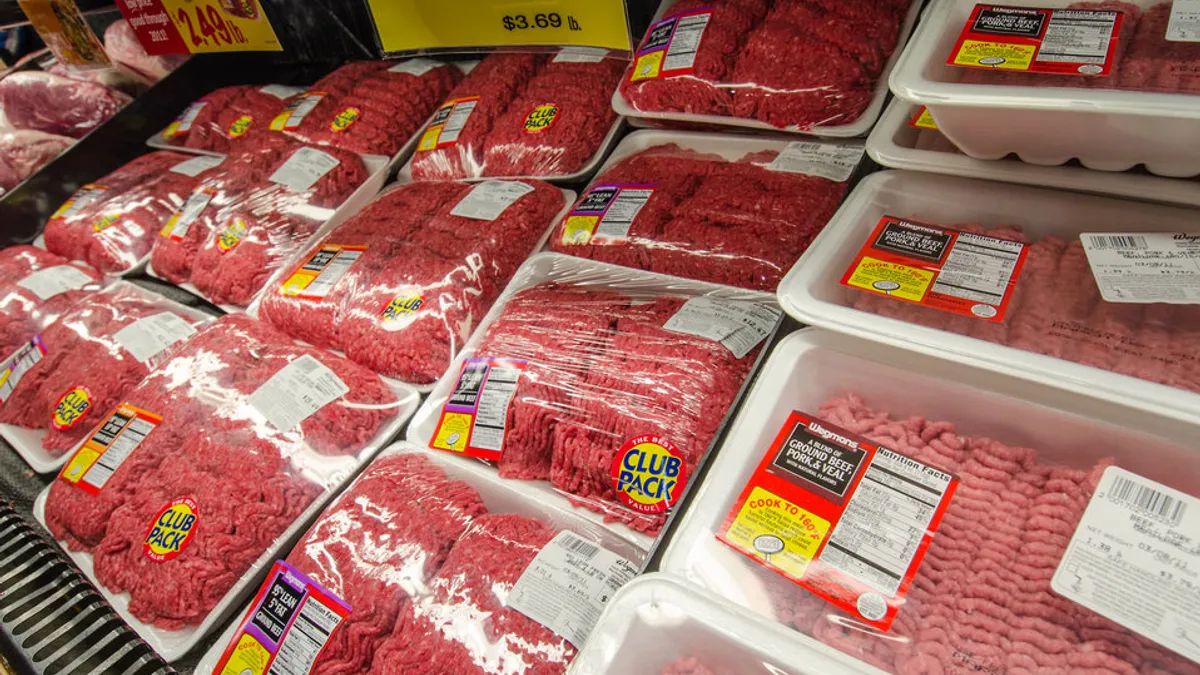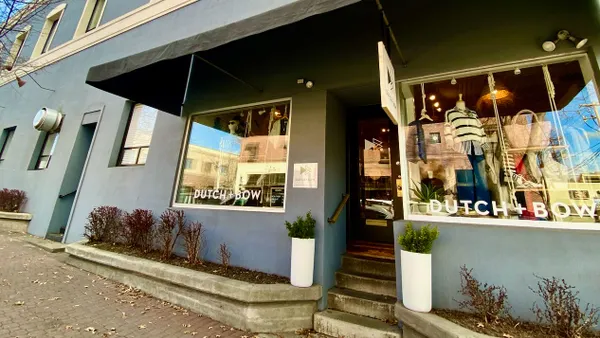Dive Brief:
- The U.S. Beef Industry Sustainability Framework — a voluntary resource developed by the U.S. Roundtable for Sustainable Beef — was adopted last week by a range of stakeholders across the industry's value chain. The roundtable represents 30% of the U.S. herd, which accounts for more than 20 billion pounds of processed beef and more than 100 million consumers, according to a release.
- Developed over four years, the framework lays out indicators for individual operations to assess beef's sustainability — including water and land resources, animal and employee safety and well-being, efficiency and yield, and air and greenhouse gas emissions. This is the first resource to demonstrate U.S. beef sustainability across the full value chain, the group said.
- Guidance documents are available to help achieve sustainability practices in these areas while maintaining operational and financial success. Metrics, a self-assessment tool and a recognition program are also included. The group noted it will not oversee the framework's implementation in the marketplace.
Dive Insight:
With plant-based alternatives taking an increasing share of the market and beef being criticized, it's not surprising the meat industry wants to bolster the sustainability credentials it has. A study published last year in the journal Science concluded animal agriculture is responsible for many global environmental problems, and avoiding consumption of animal products would help the environment more than buying sustainable meat and dairy products.
Plant-based and cell-cultured products are busy touting their own sustainability assets to consumers since they use less water and land, and result in fewer greenhouse gas emissions and water pollution. Impossible Foods recently had a science-based life cycle assessment done on the latest formulation of its Impossible Burger. It showed the plant-based burger's carbon footprint is 89% smaller than one made from beef, and the product reduced environmental impacts in every category studied.
The roundtable that worked on this framework acknowledged the beef industry has a credibility problem when it comes to sustainability, so this plan is one way of tackling it. According to the group's 2018 annual report, only 30% of consumers say they're knowledgeable about how beef is raised, and just 40% think cattle are treated humanely, hormones and antibiotics are used responsibly, and the industry uses sustainable practices.
Should this framework strategy prove successful, it has the potential to positively impact some major companies that are members of the roundtable. That includes many large meat processors, manufacturers and retailers, including American Foods Group, Arby's, Burger King, Cargill, Costco, JBS, McDonald's, Nestlé, Simplot, Target, Walmart and Wendy's.
Consumer trust in beef could be enhanced by the recognition program for individuals and companies using the framework's metrics in their operations, which will include a seal of approval. However, the roundtable doesn't verify or certify those incorporating the framework, Ashley McDonald, senior director of sustainability for the National Cattlemen's Beef Association, told the Capital Press. That fact, plus the voluntary nature of the framework, might make it less convincing than a mandatory sustainability program.
Still, it can't hurt the beef industry to emphasize the sustainability today's consumers are demanding. Whether the beef products that result will actually be any more sustainable remains to be seen. McDonald said improvement will be measured through the Sustainability Assessment of U.S. Beef Production, which measures the environmental impact of beef production and is completed approximately every five years — paid for with beef checkoff funds.
Other outreach tools could involve statistic surveys to measure how well the framework's metrics are being used on the ground, as well as more education and training. The roundtable is also supporting 16 pilot projects involving sustainable practices in different parts of the industry. All of these tools taken together might bring the beef industry closer to its goal of enhanced credibility.














